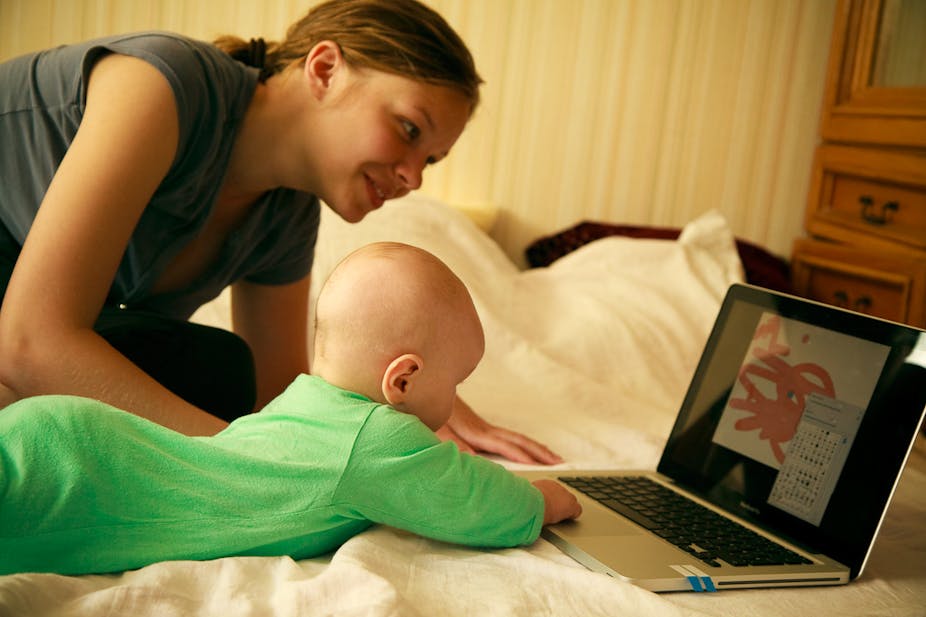Although it might sometimes seem that your Facebook feed is overrun with chatter about babies, research from Microsoft has suggested that mums actually spend less time on the site after they have had children. And while the rest of the world tweets about their every waking move, mothers just aren’t into using Twitter to share the latest milestone passed in the family home. When they post about their kids, they post on Facebook.
Microsoft has been exploring how mothers of young children use Facebook in particular, and its findings seem to counter the popular culture image of incessant updates about baby’s every breath. Their use of social-networking sites in fact declines quite dramatically after the birth of their child, and this is particularly true if the baby has developmental delays.
In an increasingly mobile society, new parents can find themselves isolated from traditional sources of advice and support. They might also perceive advice offered by their own parents as outdated. At the same time, this new generation of parents is more used to seeking information, advice and virtual emotional support online. Parenting sites such as BabyWorld, Mumsnet and Netmums are used by parents all over the world and “mummy blogging” has become such a phenomenon that 14% of US mothers apparently do it.
But little has been done to investigate how mums use social networking sites until now and Microsoft’s findings are illuminating. Using a survey and data-dump approach, the team investigated the social-networking habits of 412 US mothers of children under the age of three.
No tweets from the nest
The use of Twitter among respondents to the survey was roughly proportional to the general population of the US. But although around 18.7% of the mothers used Twitter they did not see it as a forum for sharing information about their children. Not a single respondent said they used the network to post photos or news of their child, although a small number did report sharing child-relevant links or getting involved in general discussions about parenting. Instead, they used Facebook to share photos and information about their experiences, and also to ask for advice and support.
This might be because a mother is more likely to be connected to family and friends on Facebook while Twitter is for more general acquaintances. But it may also be linked to the perception that Twitter is mainly a text-based service. The team found that, while mothers’ text postings on Facebook went down in the months following the birth of their baby, they continued to post images and videos.
Support network
The study also suggests that social media could be used to spot signs of a problem or indicate when a mother might be in need of support. An analysis of the emotional content of mothers’ Facebook posts found that, overall, they were positive after their child’s birth. But the 22.3% of respondents who had been diagnosed with postpartum depression tended to use more negative emotional words. Interestingly though, mothers with postpartum depression used social network sites more than those who didn’t suffer from the condition.
The 7.8% of the mothers who took part in the study who reported having a child with developmental delays also used a smaller percentage of positive words in their posts. They also tended to mention their children less in their posts more generally. The Microsoft team suggests that such findings have implications for the way in which social media can be used to support such groups of mothers, who may become socially isolated.
Post-pregnancy privacy
Mothers might also want to take note of the implications of all this for their online privacy. The study warns that the common patterns to be found in their Facebook posts, such as the changes in post types and frequency, may make it possible to automatically infer motherhood status, even if it has not been explicitly announced. Microsoft suggests that this information might then be used for ethically or legally questionable purposes, such as an employer choosing not to display job adverts to mothers of young children.
The study has chosen to focus on the mothers who had given birth three years ago or less, and notes that social media might have different uses for parents of older children. It would also be interesting to see how social media use changes among new fathers.

